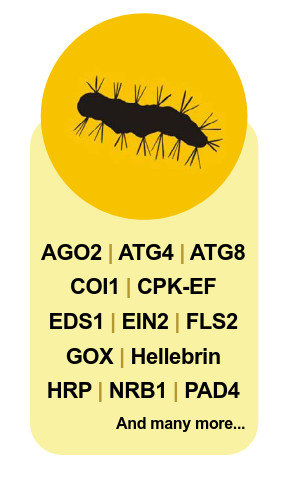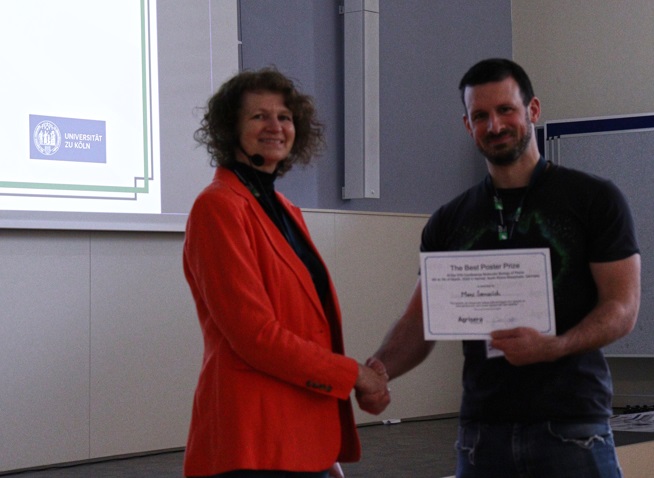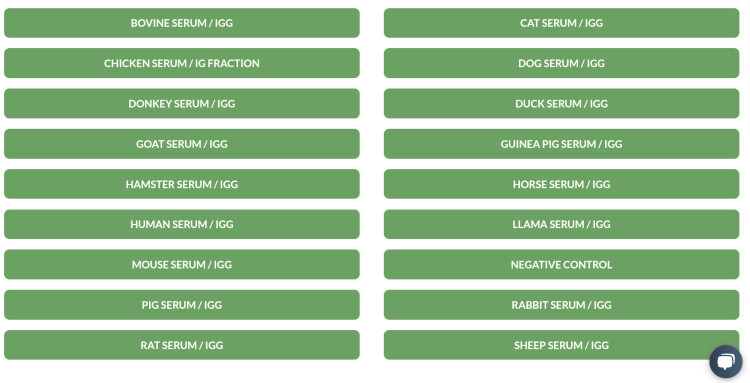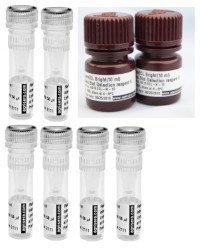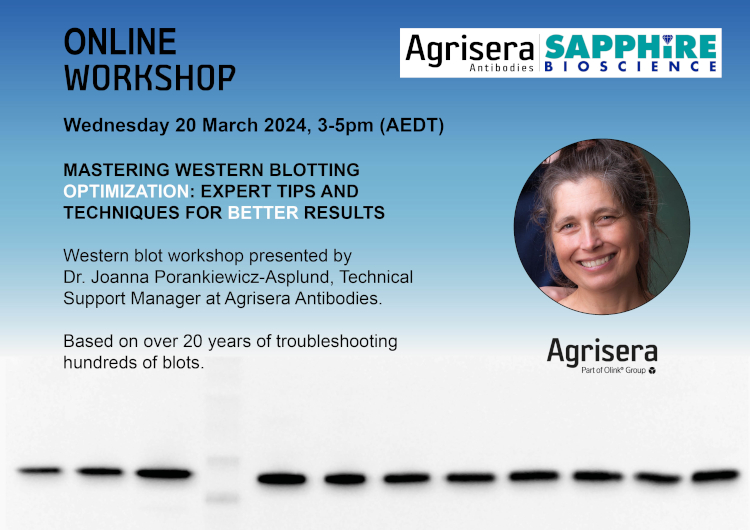Versatile ECL reagent set, which can save your day!
| Question: If something goes wrong with the development of a Western blot with ECL, or if I have too high background or too low signal, can I redo the reaction on the same blot? Answer: Yes! Within the same day. Simply wash the membrane with the appropriate washing buffer, used in your protocol, 1-2 times for 5-10 minutes, and apply another one of the ECL reagents from the Agrisera ECL reagent set. If there is too much background, and a very strong band for the target protein, apply Agrisera ECL Bright. If a target protein band is not detected, apply Agrisera ECL SuperBright. If you want to learn more about how to improve your Western blot, click here. | 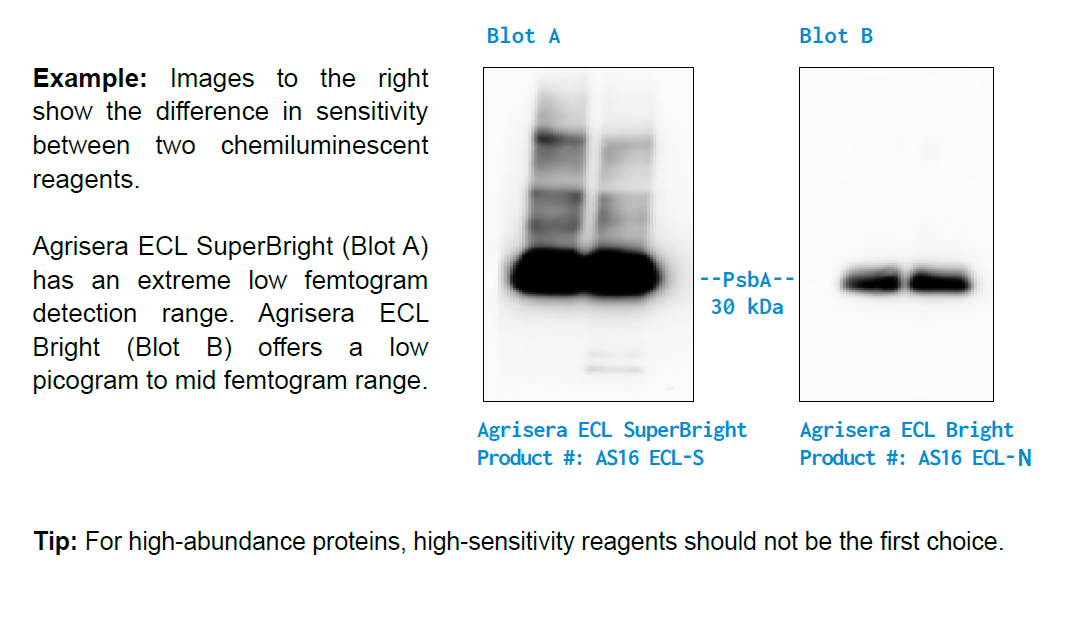 Blot A shows an abundant photosynthetic protein, PsbA, visualized with too sensitive of a reagent, which was washed away, and the membrane was subsequently developed with less sensitive Agrisera ECL Bright (Blot B). |

